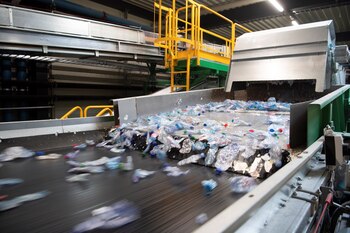
The environment was recently the protagonist of several high-impact news stories, many of them not encouraging, such as the lapidary conclusion of the United Nations that “world leaders have failed in their battle against climate change” or the spread of the overwhelming data that the world produces 300 million tons of plastic waste per year and that less than 15 per cent of it is recycled. However, there is still some room for optimism in this matter from the adoption of transformative initiatives such as the prohibition for hypermarkets, supermarkets and self-service food and beverage from delivering lightweight non-biodegradable plastic bags in its cash lines, a step forward from which the City of Buenos Aires Aires has just celebrated its fifth anniversary.
Measures such as this one — at the global level — and similar measures adopted in recent years, were highlighted when the City's Chief of Government, Horacio Rodríguez Larreta, gave his opening speech at the regular sessions of the Buenos Aires Legislature and highlighted the leadership role of the Argentine capital in the field of climate action, taking this opportunity to mention the election of CABA as the venue for the next summit of mayors of the cities that make up the C40 organization, constituted with the purpose of joining efforts to help fight global warming and climate change.
This global network of large cities, also referred to as the Climate Leadership Group, sets high standards for accession to ensure that only those that meet the criteria that make them leaders in the field are included, such as having adopted an inclusive and resilient climate action plan, aligned with the goal of limiting the increase in global average temperature to 1.5 degrees above pre-industrial levels set out in the Paris Agreement to curb the devastating effects of this phenomenon on the planet.
The City of Buenos Aires was recognized in 2015 by the C40 as “one of the ten cities in the world that has worked the most to counter the effects of climate change”. In addition to this distinction is the aforementioned location of the summit this year, which reportedly will be held on October 20 and 21, bringing together here more than 30 mayors from cities such as London, Paris, Los Angeles, Madrid, Berlin, Rome and Bogotá, an opportunity in which work will be done to establish the priorities of the post-pandemic agenda, in addition to the promotion of access to finance to implement urban projects that contribute to the fight against climate change.
It is that the environmental issue has long since ceased to be an accessory issue to gain urgent prominence on the international agenda. The closing of the 5th session of the UN Environment Assembly (UNEP 5), held between February 28 and March 2 of this year in Nairobi, Kenya, focused on a problem that is often minimized, that of plastic waste, both because of the overwhelming amount that the world generates and the small proportion of it that is recycled. In conclusion, the participating countries (Argentina among them) agreed to create the first international treaty against plastic pollution, legally binding on the signatory States.
To understand the problem, keep in mind that the so-called “single-use” plastic has a useful life of less than 20 minutes (estimates vary by source) but it takes hundreds of years to decompose. In addition, plastic bags, which incredibly continue to be thrown off the coast, reach the waters, suffocating or causing blockage of the digestive tract of fish of all sizes.
In this context, the steps taken by the City of Buenos Aires take on a greater dimension. The ban mentioned at the beginning of this note prevented more than 500 million nylon bags a year from being in circulation, ending up — unfailingly — in the garbage.
In addition, the new Recycling Plan reaffirms that CABA is at the forefront of environmental policies, including with regard to waste separation. Those first green bells, set up for recyclable materials in 2006, multiplied year by year to reach the current ambitious goal of having one within 150 meters of every neighbor of the City, within the framework of the BA RECICLA program, which also continues the coordinated work with the cooperatives of urban waste pickers .
The list of actions could continue with the delivery of the “Green Seal”, a certification that recognizes and rewards the actions of the private sector in the proper management of their waste, and the reference to a standard that includes in its incentive precepts such as that: the Circular Economy Law, approved at the request of a project of which I am co-author. Much has been done, but the climate crisis demands even more.
The C40 Cities summit will surely be a formidable opportunity to increase exchanges and agreements in order to care for the “common home”.
KEEP READING
Últimas Noticias
Debanhi Escobar: they secured the motel where she was found lifeless in a cistern
Members of the Specialized Prosecutor's Office in Nuevo León secured the Nueva Castilla Motel as part of the investigations into the case

The oldest person in the world died at the age of 119
Kane Tanaka lived in Japan. She was born six months earlier than George Orwell, the same year that the Wright brothers first flew, and Marie Curie became the first woman to win a Nobel Prize

Macabre find in CDMX: they left a body bagged and tied in a taxi
The body was left in the back seats of the car. It was covered with black bags and tied with industrial tape
The eagles of America will face Manchester City in a duel of legends. Here are the details
The top Mexican football champion will play a match with Pep Guardiola's squad in the Lone Star Cup

Why is it good to bring dogs out to know the world when they are puppies
A so-called protection against the spread of diseases threatens the integral development of dogs




